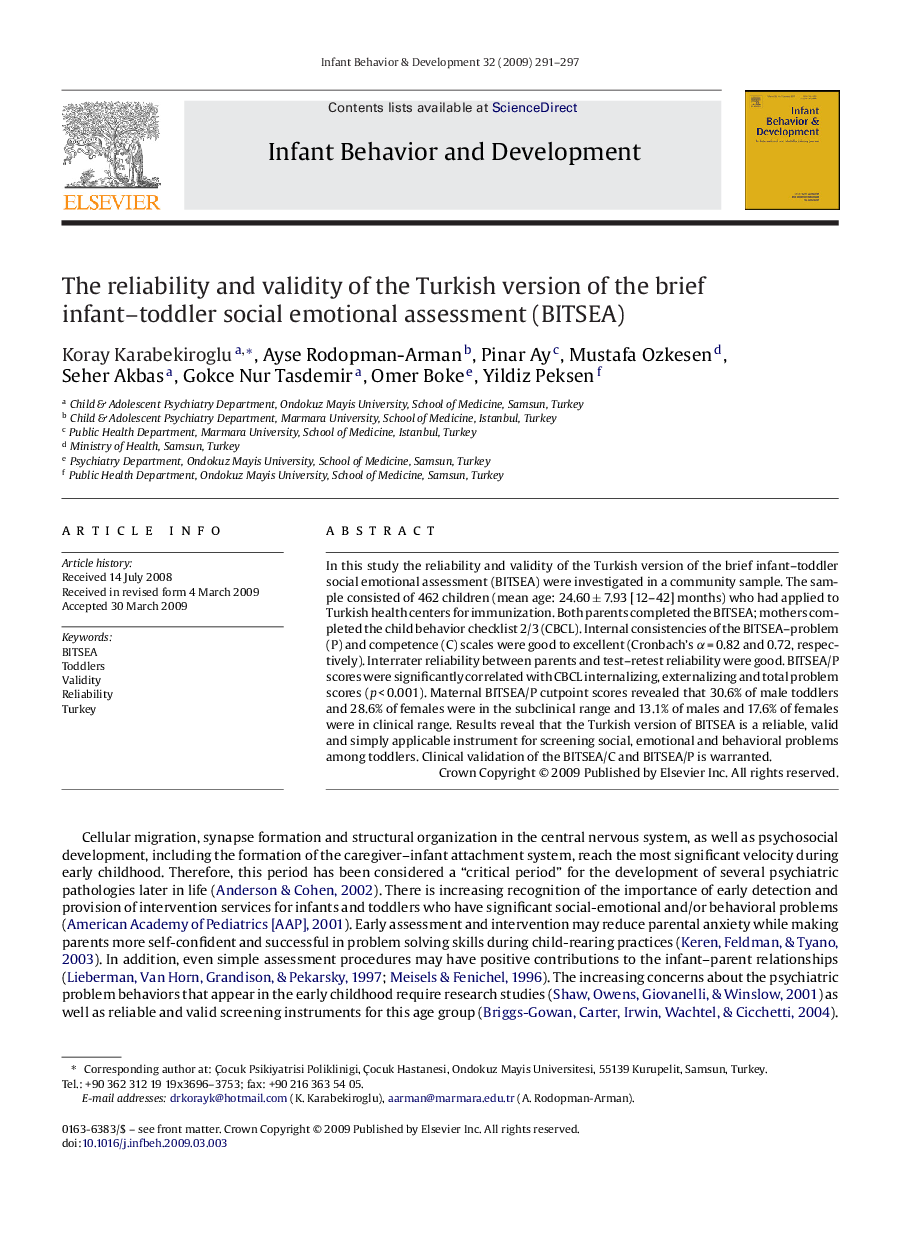| Article ID | Journal | Published Year | Pages | File Type |
|---|---|---|---|---|
| 917498 | Infant Behavior and Development | 2009 | 7 Pages |
In this study the reliability and validity of the Turkish version of the brief infant–toddler social emotional assessment (BITSEA) were investigated in a community sample. The sample consisted of 462 children (mean age: 24.60 ± 7.93 [12–42] months) who had applied to Turkish health centers for immunization. Both parents completed the BITSEA; mothers completed the child behavior checklist 2/3 (CBCL). Internal consistencies of the BITSEA–problem (P) and competence (C) scales were good to excellent (Cronbach's α = 0.82 and 0.72, respectively). Interrater reliability between parents and test–retest reliability were good. BITSEA/P scores were significantly correlated with CBCL internalizing, externalizing and total problem scores (p < 0.001). Maternal BITSEA/P cutpoint scores revealed that 30.6% of male toddlers and 28.6% of females were in the subclinical range and 13.1% of males and 17.6% of females were in clinical range. Results reveal that the Turkish version of BITSEA is a reliable, valid and simply applicable instrument for screening social, emotional and behavioral problems among toddlers. Clinical validation of the BITSEA/C and BITSEA/P is warranted.
